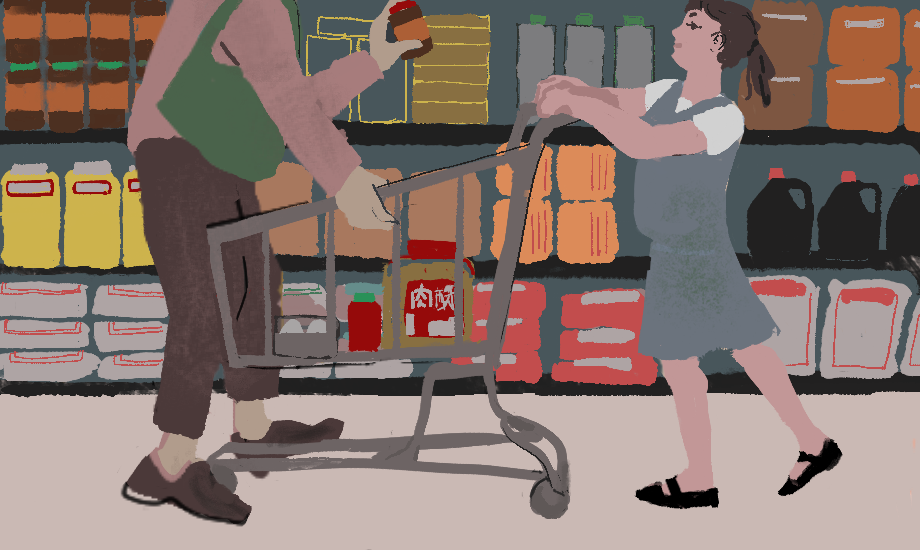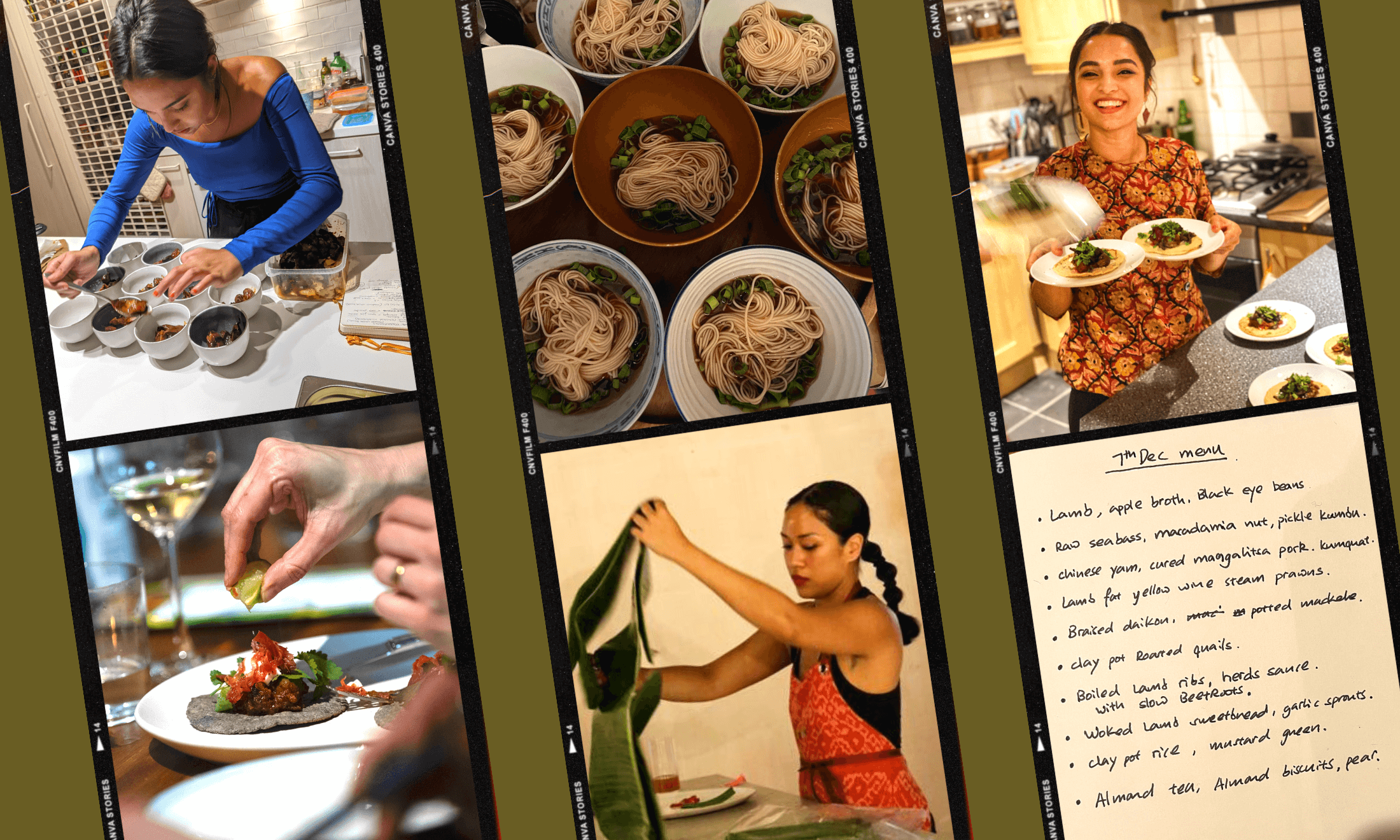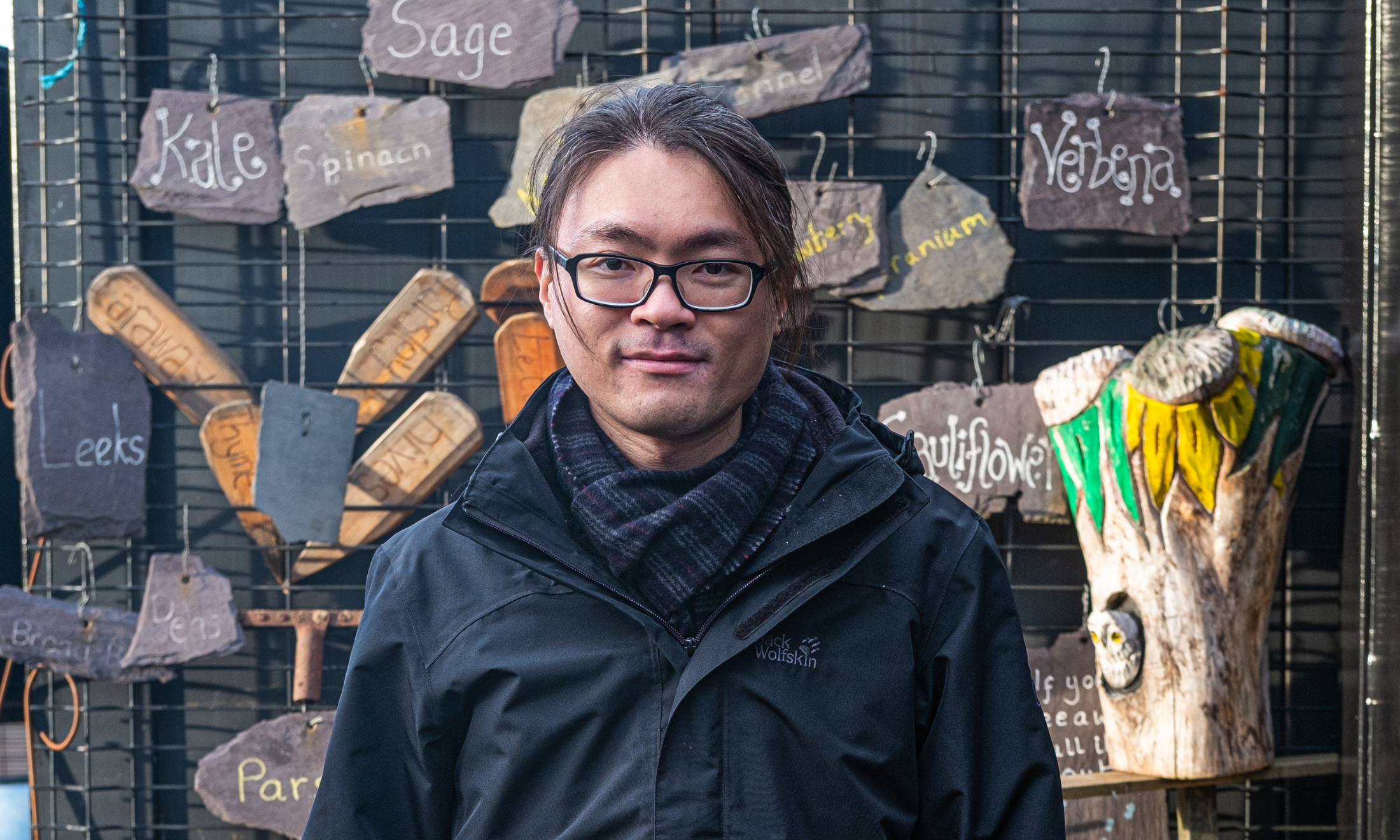
Finding solace in the Chinese supermarket during lockdown
When Catharine Hughes’ grandmother passed away this summer, she found comfort in an unlikely place.
Catharine Hughes
20 Nov 2020
Illustration by Ning Yang
It’s Sunday morning and I’m staring at a packet of pork floss, completely overwhelmed. I’m in Wing Yip, the gargantuan Chinese supermarket at the very top of Edgware road. Its bright red and green curved tiled roof sticks out like a sore thumb in the grey web of the north circular and the surrounding industrial parks of North London. Recently, I’ve been spending an increasing amount of time exploring supermarkets, treating them as an outing, an excursion, an adventure. It’s one of the few things we have left to do during lockdown, one of the few things that hasn’t been lost in the disarray of restrictions.
There’s no guide on how to process loss, especially in a year that has been coloured in shades of grief for the whole world. Ama (my grandma) passed away in July. It wasn’t Covid. As my mum explained it, “She was tired, she was in pain, she knew we couldn’t travel to see her.” I knew I hadn’t processed her loss, and I knew it would catch up with me, I just didn’t know it would be in the form of a dried meat product my mum once dubbed “cotton wool”.
My mum’s family is Taiwanese. They immigrated first to Brazil before ending up in the US in the 70s. Collectively, Ama and I could speak five languages, but confusingly held no common tongue. We were unable to communicate the simplest “how are you” or “how was your day”. Rather, our relationship took place on her kitchen table in the suburbs of east LA through a constant choreography of items that would appear before me; steaming pots of shabu-shabu (Japanese hot pot), mushroom tea that would have spent all morning simmering, plates of cut up papaya, guava and Chinese pears. When I was younger I readily accepted my role as the eater, greedy to experience every new taste available. But as I got older, sitting at the table became more of a ritual, a way of showing appreciation from both sides.
“I stare at the pork floss thinking about how many bowls I ate of it at Ama’s house without having the words to say what it was for years”
I stare at the pork floss thinking about how many bowls I ate of it at Ama’s house without having the words to say what it was for years. No one in my family knew what it was called in English, and I had no intention of trying to describe my love for “meat wool” to my friends at school. But as soon as Ama got an inkling to my predilection for this sweet soy pork, in true grandma tradition, she would ensure it was always there for me; getting it out as soon as I walked through her front door and sending tubs home with us when we flew back to the UK.
In times of loss, we try to cling to something, a memory, a point of stability, a solace. We’ve all experienced loss in one way or another this year and there’s been little to hold on to, even though, contradictingly, nothing has moved. I guess rather than things moving, they have gradually dissipated, vanishing from view. The nature of Ama’s passing happened in the same way, and once again I felt the fear of having nothing to hold on to, grasping for a way to honour her memory. But I’ve found it here.
Memories of an entire relationship based on food come crashing down on me as I look around. The silky Chinese mango puddings that Ama would order for me every meal out, after seeing that I enjoyed it once. The bright yellow cardboard cylinders of fermented black beans that lined the bottom shelf of her kitchen cupboard. I bend down to pick up the porcelain blue and white rice bowls which I know literally millions of East Asians own, but for some reason, in that moment, they feel personal.
And it’s not just the memories of my grandma that I meet in the supermarket aisles. My flatmate Steph has also shown me love through food over the years, keen to teach me everything she knew about Cantonese cuisine and the dishes her family had shared with her. When I look up to the top shelves, I’m reminded of the manic yet simpler times of our second year of university when Steph lugged home a wholesale box of instant noodles. We pretty much lived on those alone for six weeks.
“Try this one!” I hear Steph exclaim as I glance at the shelves packed with jars of sauces, her chopsticks constantly delivering something new into my bowl. Usually, it would be her latest chili oil discovery, after we’d made our way through the entire Lao Gan Ma collection (if you haven’t already, try it – I promise it’s life-changing) and probably dyed our insides red in the process.
“Food is more than sustenance, it’s more than a taste we enjoy. The food that we eat forms our memories, our relationships, our lives”
Food is more than sustenance, it’s more than a taste we enjoy. The food that we eat forms our memories, our relationships, our lives. This is a truth for everyone, but especially for immigrants and diaspora communities. When food travels with people, it’s a way of bridging a culture that has been left. And for many who belong to a second or third generation, it’s a way of connecting with a culture we’ve never fully known.
I like to think that Ama felt this same solace when she went to the Chinese and Japanese supermarkets in America, a land that was her home for over 40 years, but a culture, a language, and definitely a cuisine that she never assimilated to. Sometimes I fear that due to our own language and cultural gaps I never truly knew who Ama was to the other people in her life. But this doesn’t detract from the version of her that I hold in my memories; the version of her that tugs at me when I see pots of mango pudding or sachets of pork floss in the aisles of the supermarket.








